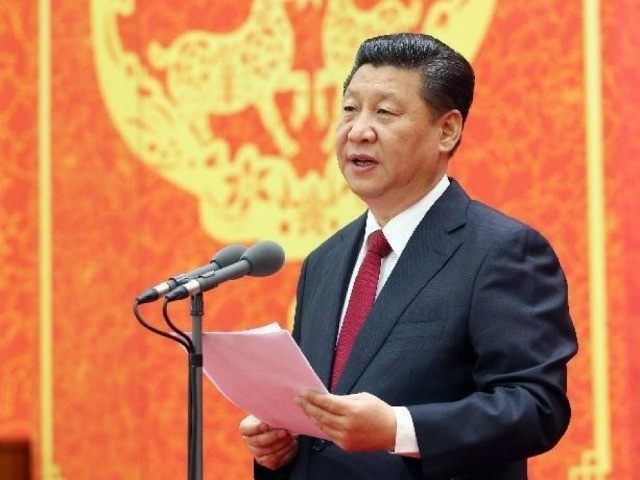In light of escalating terrorist activity in its western Xinjiang region, the Chinese legislature is considering its first terror-specific criminal code—which, in its current form, would make any speech the government deems to “undermine public security” a criminal violation.
State news outlet Xinhua reports this week that lawmakers are struggling to tighten the language in what they hope will become the first nationwide, terror-specific laws in the nation’s history (currently, terrorists are charged using conventional murder, battery, and conspiracy charges). The single biggest hurdle for the legislators, Xinhua reports, is narrowing down the definition of terrorism, as opposed to conventional violent crime.
Currently, the draft law defines terrorism as “any speech or activity that, by means of violence, sabotage or threat, generates social panic, undermines public security, and menaces government organs and international organizations.” This differs from the initial definition proposed in October, which would have also defined “thoughts” as punishable terrorist offenses.
Xinhua reports that legislators dropped “thoughts” from the definition “for the sake of accuracy and applicability.” Before the new edits to the bill, however, China also faced significant criticism for not sufficiently safeguarding the civil rights of its citizens by making certain types of thought illegal. Human Rights Watch, in particular, objected to the inclusion of thoughts as recently as earlier this month, citing human rights concerns.
“China has seen appalling attacks on people, and the government has a duty to respond and protect the population. But in its present form this law is little more than a license to commit human rights abuses,” China director for Human Rights Watch Sophie Richardson said, arguing that the bill needed “to be completely overhauled.” Xinhua’s account of the modifications in the new draft do not indicate legislators have “overhauled” the bill, merely excluded “thought” from the list of possible criminal actions and added what the state-run newspaper describes as civil rights protecting measures, requiring extended applications on the part of government officials to read the private internet correspondence of terror suspects.
The bill also proposes new rules for regulation of airspace, designed to thwart potential drone attacks.
The South China Morning Post highlights a segment of the bill that Xinhua does not: the religious provisions in the anti-terror legislation. “[T]he draft also includes provisions about extremism that distort religious teachings, spread religious fanaticism, advocate violence, or are hostile to society and anti-human.” Language regarding “religious fanaticism” will have an especial impact on China’s Muslim population, which reside mostly in the western Uyghur province of Xinjiang. Uyghur separatists have been responsible for a growing number of terrorist acts in Xinjiang, including multiple stabbing attacks.
Fearing the international rise of radical Islam in particular, the Chinese government has moved to crack down on the practice of the religion in Xinjiang. Chinese officials have banned the practice of religion in public buildings, the observation of the holiday of Ramadan in Xinjiang’s capital Urumqi, in particular, the public display of long beards or “Islamic garb,” and the use of burqas in Urumqi.
In January, the Chinese government unveiled an initiative to reframe the international war on terror as a Maoist struggle of the people against terrorists fueled by religion or other unacceptable ideology. Renaming the struggle the “People’s War,” President Xi Jinping stated in a speech in January: “[We must] make terrorists become like rats scurrying across a street, with everybody shouting ‘beat them!’”

COMMENTS
Please let us know if you're having issues with commenting.